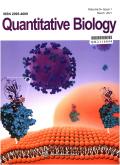用于药物相互作用预测的深度学习:综述
IF 0.6
4区 生物学
Q4 MATHEMATICAL & COMPUTATIONAL BIOLOGY
引用次数: 0
摘要
预测药物间相互作用(DDIs)是药物安全性研究的一项重要任务,识别潜在的DDIs有助于我们探索组合疗法背后的机理。传统的 DDI 湿化学实验繁琐耗时,而且规模太小,限制了 DDI 预测的效率。因此,开发更好的计算方法来检测药物相互作用尤为重要。随着深度学习的发展,一些基于深度学习的计算模型已被提出用于DDI预测。在这篇综述中,我们总结了近年来基于深度学习的高质量 DDI 预测方法,并将其分为四类:基于神经网络的方法、基于图神经网络的方法、基于知识图谱的方法和基于多模态的方法。此外,我们还讨论了现有方法面临的挑战和未来的潜在前景。综述显示,与传统机器学习相比,深度学习能显著提高 DDI 预测性能。深度学习模型可以扩展到大规模数据集,并接受多种数据类型作为输入,从而使 DDI 预测更高效、更准确。本文章由计算机程序翻译,如有差异,请以英文原文为准。
Deep learning for drug‐drug interaction prediction: A comprehensive review
The prediction of drug‐drug interactions (DDIs) is a crucial task for drug safety research, and identifying potential DDIs helps us to explore the mechanism behind combinatorial therapy. Traditional wet chemical experiments for DDI are cumbersome and time‐consuming, and are too small in scale, limiting the efficiency of DDI predictions. Therefore, it is particularly crucial to develop improved computational methods for detecting drug interactions. With the development of deep learning, several computational models based on deep learning have been proposed for DDI prediction. In this review, we summarized the high‐quality DDI prediction methods based on deep learning in recent years, and divided them into four categories: neural network‐based methods, graph neural network‐based methods, knowledge graph‐based methods, and multimodal‐based methods. Furthermore, we discuss the challenges of existing methods and future potential perspectives. This review reveals that deep learning can significantly improve DDI prediction performance compared to traditional machine learning. Deep learning models can scale to large‐scale datasets and accept multiple data types as input, thus making DDI predictions more efficient and accurate.
求助全文
通过发布文献求助,成功后即可免费获取论文全文。
去求助
来源期刊

Quantitative Biology
MATHEMATICAL & COMPUTATIONAL BIOLOGY-
CiteScore
5.00
自引率
3.20%
发文量
264
期刊介绍:
Quantitative Biology is an interdisciplinary journal that focuses on original research that uses quantitative approaches and technologies to analyze and integrate biological systems, construct and model engineered life systems, and gain a deeper understanding of the life sciences. It aims to provide a platform for not only the analysis but also the integration and construction of biological systems. It is a quarterly journal seeking to provide an inter- and multi-disciplinary forum for a broad blend of peer-reviewed academic papers in order to promote rapid communication and exchange between scientists in the East and the West. The content of Quantitative Biology will mainly focus on the two broad and related areas: ·bioinformatics and computational biology, which focuses on dealing with information technologies and computational methodologies that can efficiently and accurately manipulate –omics data and transform molecular information into biological knowledge. ·systems and synthetic biology, which focuses on complex interactions in biological systems and the emergent functional properties, and on the design and construction of new biological functions and systems. Its goal is to reflect the significant advances made in quantitatively investigating and modeling both natural and engineered life systems at the molecular and higher levels. The journal particularly encourages original papers that link novel theory with cutting-edge experiments, especially in the newly emerging and multi-disciplinary areas of research. The journal also welcomes high-quality reviews and perspective articles.
 求助内容:
求助内容: 应助结果提醒方式:
应助结果提醒方式:


